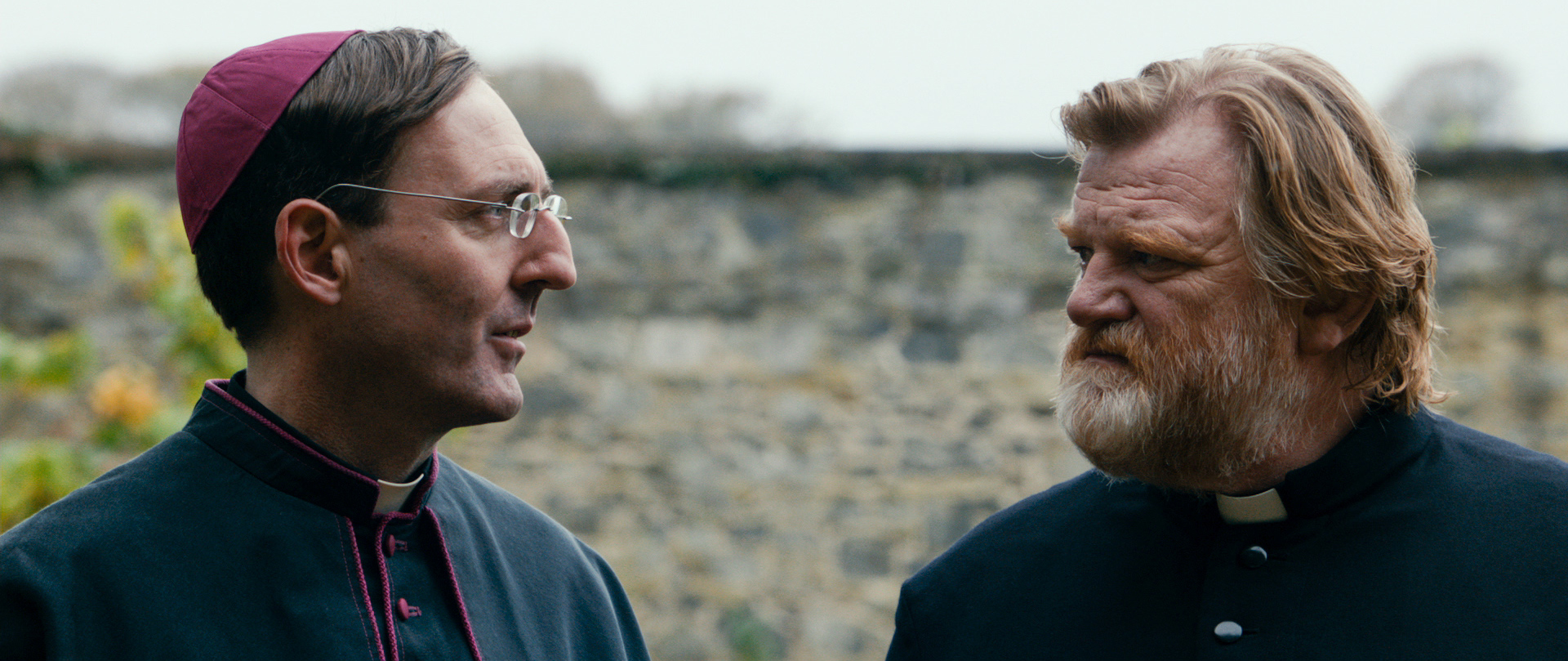This is a bumpy, uneven picture full of colorful digressions—is that simply to say it’s Irish?—and narrative dead-ends. Its writer and director is John Michael McDonagh, whose The Guard was no less unwieldy (though more comical). But both pictures are given ballast, and a deep keel beyond that, by the greatness of Brendan Gleeson. Every one of McDonagh’s filmmaking errors is forgiven on account of Gleeson’s cleric, who tends a small ungrateful flock on the windswept west coast of Ireland. McDonagh, no dummy, knows the sterling worth of his leading man, while the villagers mostly scoff at Father James Lavelle. He’s widowed and on his second career, meaning we should be unperturbed when his depressed daughter Fiona (Kelly Reilly) arrives for a visit.
Father James has been cast as a kind of turnaround artist for a dying enterprise: Catholicism is fading fast, even in Ireland, and the widening pedophilia scandal has made the church a damaged brand. He’s the right man for the wrong job, a newcomer in a village now venting what seems to be centuries of resentment against the old ecclesiastical control. That anger is expressed in the film’s very first scene, set in a confessional, where Father James is told he’ll be killed in a week, to be sacrificed for the sins of his church. He’s blameless, says the voice we’ll try to guess in the seven days ahead: “I’m going to kill you because you’ve done nothing wrong. I’m going to kill you because you’re innocent.” And so, by implication, was the former altar boy—once sexually abused—now grown to be a vengeful assassin.
There’s a certain kind of sick logic to the threat, like a twisted joke made in a pub. Humor, and there is plenty in Calvary, is a way of testing the new boundaries of the permissible—if there are any such boundaries now that the church’s authority is gone. Along with his acclaimed playwright-director brother, Martin (In Bruges, Seven Psychopaths), McDonagh grew up on American movies and TV. Here he makes explicit nods to High Noon and I Confess; Calvary is equally a thriller about a man investigating his own murder and a consideration of what it means for a nation to lose its collective, unifying faith. Father James’ seven-day search leads him through an array of sinners, skeptics, wife-beaters, adulterers, suicide contemplators, and such. They’re a colorful lot, not entirely plausible as people—more like movie archetypes or illustrative characters in Pilgrim’s Progress. (One rent boy talks like James Cagney; the cop Stanton is back from The Guard; and M. Emmet Walsh is on hand, then gone, for no apparent purpose.)
Still, this is Gleeson’s show, and he’s what makes Calvary worthwhile. McDonagh has a clunky way of staging dialogue scenes, where Position A and Position B stand up to declaim at each other. But he gets the moment exactly right when Father James, walking to the beach and talking with a seven-year-old girl, is startled by her angry father, a tourist in a SUV. He sweeps his child up and glares at the honorable priest, who can’t defend himself against the man’s tacit accusation. Gleeson looks stunned and wounded, slumps his shoulders in silence, and accepts the scorn. Then he keeps walking forward to his fate. Opens Fri., Aug. 15 at Harvard Exit and Sundance Cinemas. Rated R. 105 minutes.
bmiller@seattleweekly.com








